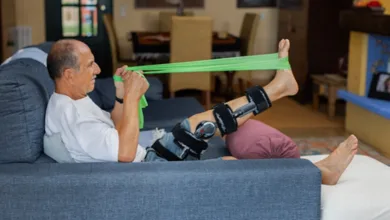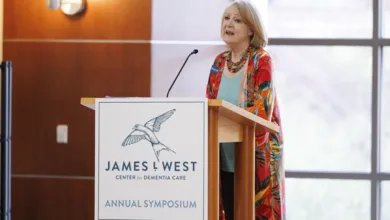How to Support Brain Health
Don't dread dementia—take action to protect your mind

“Dementia worry” is a condition affecting thousands around the globe—so much so that researchers are now studying it.
In England, a report noted that only one in 10 participants over 50 feared cancer, whereas two-thirds feared dementia. In Australia, where dementia is the nation’s second most feared disease, researchers are concerned that some people who worry about memory loss stop going to doctors or informing themselves on how to stay physically and mentally healthy.
No one wants to experience dementia. Yet “dementia worry” is less about people directly affected by dementia and more about the scores of us who wonder, “What if?”
I get it. Each time I miss a word or forget why I just rushed into the kitchen, the big question jumps in: Is this the beginning of dementia? Am I losing my mind? Having watched members of my family deal with dementia, I know the condition, in its varied forms, is no picnic.
But worry helps no one. While researchers may someday find a medical treatment to slow or halt dementia, there are many things we can do today to support our brain’s health.
“A healthy brain begins with small, daily choices you make today.”
8 Brain Healthy Habits
1. Flush away fear
Chronic fear is a health hazard, and anxiety may increase inflammation. So when you worry, ask yourself, “Is this helping my state of mind, or is it increasing my stress?” Then, adjust accordingly.

2. Watch your diet
Many recommendations for supporting brain health can also improve overall health, offering a double reward. Diets that promote longevity often benefit the brain as well. Avoid highly processed foods and sugars—no diet recommends these. Be mindful of your alcohol and red meat consumption, and check if you are sensitive to dairy or wheat, as inflammation from these can accelerate brain decline. And remember the benefits of those vegetables and fruits our mothers constantly nagged us to eat.
Researchers are investigating special diets to reduce memory loss, including the ketogenic (low-carb/high-fat) diet, which data suggests might help reverse dementia. It’s a strict diet, and unfortunately, it didn’t help my cousin with early-onset dementia. Still, it might be worth a try.

3. Exercise
Your brain loves exercise that engages you both physically and cognitively. It’s even better if your exercise is social—social engagement is another key to healthy living. Pick your passion: Zumba, yoga, square dancing, walks with friends—find what works best for you.
4. Manage Your Blood Pressure
High blood pressure can harm both your mental and physical health. Keep it in check to maintain overall well-being.
5. Sleep Well
We need sleep to stay brain-healthy, and sleeping poorly or not enough increases the chance of brain decline. However, be cautious with sleeping pills like Ambien, as they have been correlated with an increased likelihood of dementia. Relaxing with CBD before bedtime may be helpful and less risky.

6. Engage in creative activities
We’ve hit the motherlode regarding the benefits of engaging and creative activity. Mayo Clinic researchers found in a four-year study of 256 people over 85 that “…artistic activities like painting, drawing, and sculpting in later years lowered the risk of developing early signs of dementia by 73%.” No matter how old or physically challenged we are, we can find something creative to do to support our brain function, like doodling, painting, humming, singing, bird watching, flower arranging, woodworking, and writing. The possibilities are endless, so pick what you love, and better yet, find people who’d like to do it with you.
Even if you have Alzheimer’s, the parts of your brain that control artistic activities like singing and making art may not be affected by the decline. This is excellent news: it means we can sing for life! Participating in creative activities also supports us—we reap benefits from observing, listening to, and enjoying the arts.
7. Work your brain
Follow your curiosity and keep learning. Learn a language, do a puzzle, or, as we often need to, figure out how to use that new software on your computer.

8. Change your mindset
Our society sometimes treats people with dementia as if they have a contagious condition. They do not. Folks with extreme memory loss deserve to be treated as welcome members of the community. When we spend time with our loved ones suffering from dementia (instead of avoiding them), their diminished capabilities become a part of life and less something to fear. Treat them with the respect and inclusion they deserve.
Dementia may be sad, but the friends and family I’ve known with the condition still had lots of joy in their lives. A theater director told me that her father, who has dementia, enjoys playing in improvisational theatre. “He lives and responds in the moment, just like great improv stars.”
So, instead of dreading dementia, do something to support your brain health. Get creative. Pursue what you love. Keep your brain and body healthy. Then, no matter what happens, your mind and being will still be ahead.





